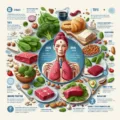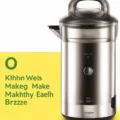Feeling sluggish and fatigued may sometimes be related to diet, and specifically, iron intake. Iron is a crucial mineral that plays an essential role in energy production and overall health. As a Registered Dietitian (RD), I often encounter clients who are unaware of the impact iron has on their energy levels and how to optimize their iron intake for better vitality.
Understanding the Role of Iron in Energy Metabolism
Iron is a key component of hemoglobin, the protein in red blood cells that carries oxygen throughout the body. Without sufficient iron, your body can’t produce enough healthy red blood cells to effectively transport oxygen, leading to fatigue and weakness. This condition is known as iron-deficiency anemia, a common cause of tiredness.
Identifying Iron-Rich Foods
To maintain adequate iron levels and boost your energy, it’s important to include iron-rich foods in your diet. Animal sources such as red meat, poultry, and fish are high in heme iron, which is easily absorbed by the body. Plant-based sources like lentils, beans, and spinach provide non-heme iron, which while beneficial, may require the presence of vitamin C to enhance absorption.
Maximizing Iron Absorption
Combining iron-rich foods with vitamin C-rich foods like oranges, strawberries, and bell peppers can significantly boost iron absorption. Conversely, certain substances such as caffeine and calcium can inhibit iron absorption, so it’s advisable to consume them separately from iron-rich meals.
Supplementing with Iron
In some cases, diet alone may not be sufficient to correct iron deficiency. An RD can assess your individual needs and may recommend an iron supplement. It’s important to note that iron supplements should only be taken under the guidance of a healthcare professional, as excessive iron intake can be harmful.
Monitoring Your Iron Status
Regular blood tests can help monitor your iron levels and ensure you’re not experiencing iron overload or deficiency. Symptoms of iron deficiency can include fatigue, pale skin, and shortness of breath. If you suspect an issue with your iron levels, consult with an RD or your healthcare provider.
FAQ: Boosting Energy with Iron
Q: How much iron do I need daily to boost energy?
A: The recommended dietary allowance (RDA) for iron varies by age, sex, and life stage. Women aged 19-50 generally require 18 mg per day, while men in the same age group need about 8 mg. Consult an RD for personalized advice.
Q: Can too much iron be harmful?
A: Yes, excessive iron intake can lead to iron overload and may cause liver damage and other health issues. It’s essential to follow recommended dosages and seek professional guidance.
Q: Are there any signs of iron deficiency?
A: Common signs include chronic fatigue, weakness, pale skin, and, in severe cases, shortness of breath. If you experience these symptoms, get your iron levels checked.
Q: Is it better to get iron from food or supplements?
A: Ideally, iron should come from a balanced diet. However, supplements may be necessary for some individuals under medical advice.
Q: How can vegetarians and vegans ensure they get enough iron?
A: They should focus on plant-based iron sources and consume vitamin C-rich foods to enhance absorption. Iron-fortified foods and supplements may also be considered.









